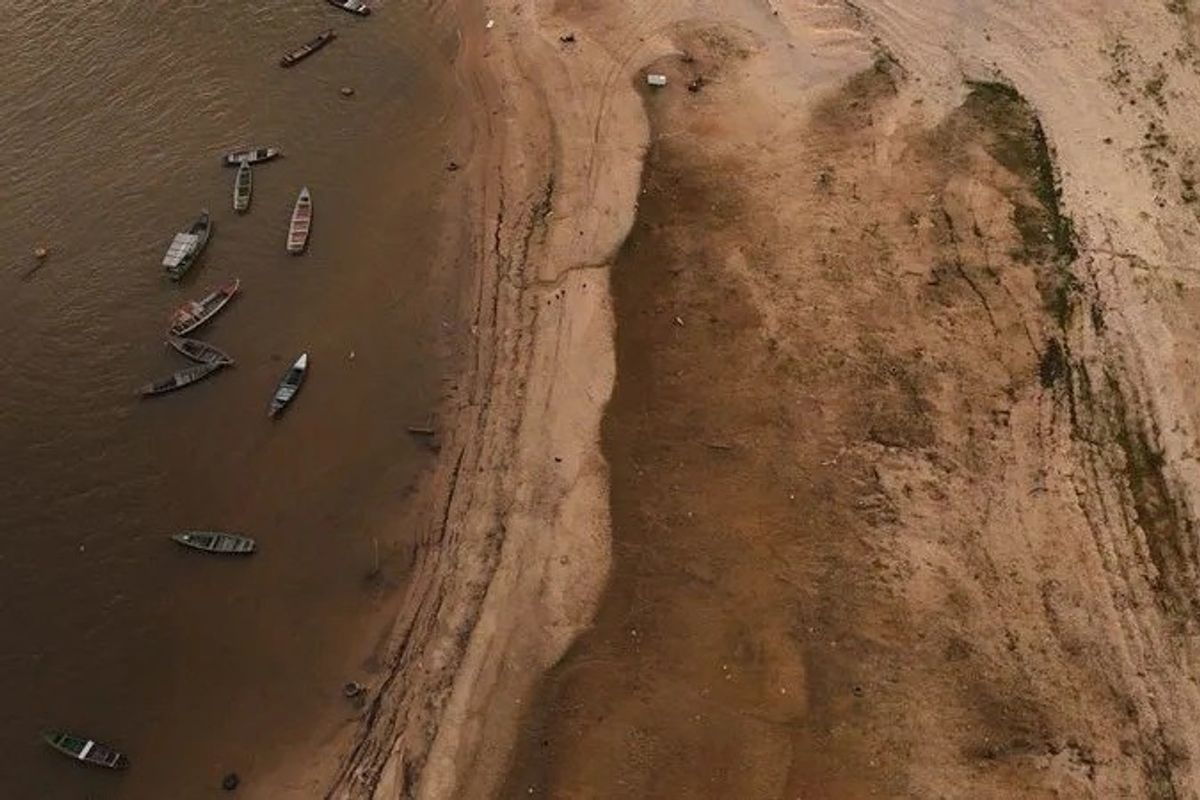New research calls for 'radical rethink' on drought
Research shows 75% of world population could face drought impacts by 2050
AFP
News Agency Partner
AFP is a renowned international news agency, delivering comprehensive and reliable reporting on global events, trends, and issues.

Droughts worsen from climate change, transforming fertile lands into arid regions
Effects cascade beyond direct impacts to disrupt energy, shipping, and global trade
Panama Canal shipping and hydroelectric power production facing major disruptions
Record-breaking droughts are becoming a "new normal" for billions of people yet few countries are taking the threat seriously, researchers warned in a global snapshot of the scourge on Monday.
The launch of the "World Drought Atlas" comes as governments convene in Saudi Arabia for the COP16 summit on land degradation and desertification.
Droughts are being made worse by human-caused climate change and longer and harsher dry spells can contribute to the depletion of fertile soils as they gradually turn arid.
The EU and UN, which backed the research, said droughts were "one of the world's most costly and deadly hazards" and the report should serve "as an urgent wake-up call for world leaders".
This year is almost certain to be the hottest on record and has been marked by destructive droughts from Ecuador to Morocco and Namibia to the Mediterranean.
Droughts are "less visible and attract less attention than sudden events like floods and earthquakes" but should not be underestimated, the researchers warned.
Apart from those directly impacted, droughts can have knock-on effects on energy production, global trade, and industries like shipping.
By 2050 some three out of four people could be affected in some way by drought, said the United Nations Convention to Combat Desertification (UNCCD) and the European Commission Joint Research Centre, which co-launched the research.
Through dozens of maps, graphics and case studies, the World Drought Atlas aims to show "how drought risks are interconnected... and how they can trigger cascading effects, fueling inequalities and conflicts and threatening public health".
Droughts can, for example, hinder the production of hydroelectric power, sparking higher energy prices or power outages.
During a heatwave, this could lead to hospitalizations or even death should people be unable to use fans or air conditioners for relief.
Droughts also disrupt shipping through major corridors like the Panama Canal and place further water stress on small-scale farmers, the atlas added.
The research "challenges governments, business leaders, and policy makers at all levels to radically rethink how they make decisions and manage drought risk", said UNCCD head Ibrahim Thiaw.
Nations at the COP16 summit in Riyadh between December 2 and December 13 should take the findings "seriously", he added.
UN Secretary-General Antonio Guterres has called the meeting a "moonshot moment" to protect and restore land and respond to drought.
The UNCCD, which brings together 196 countries and the EU, said 1.5 billion hectares (3.7 billion acres) of land must be restored by decade's end to combat crises including escalating droughts.










Comments
See what people are discussing